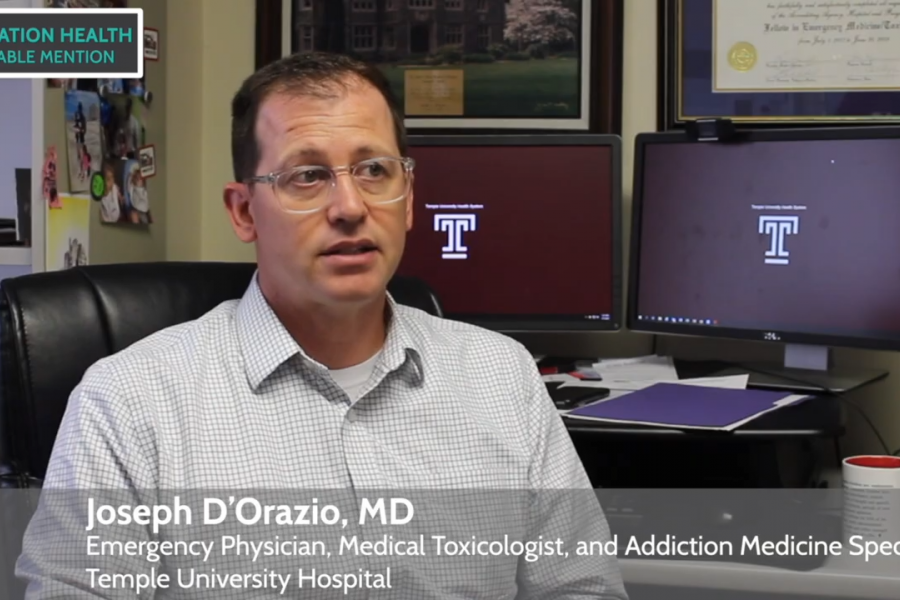Temple University Health System has been recognized by America’s Essential Hospitals, a national trade association, for its pioneering work in population health, specifically its innovative hub-and-spoke model to dramatically improve access to effective counseling and treatment for patients with opioid use disorder in an office-based opioid treatment program setting.
America’s Essential Hospitals, which represents 300 hospitals committed to caring for the vulnerable and keeping communities healthy, awarded Temple University Health System a 2020 Gage Award Honorable Mention for improving population health. The association presented the award Aug. 19 at its annual conference, held virtually due to the COVID-19 pandemic.
“At Temple University Health System, we’ve seen firsthand the impact that opioid use disorder has on our community. Working with a variety of partners, we established a hub-and-spoke model that delivers treatment to those who otherwise would have had limited access to care,” said Michael A. Young, MHA, FACHE, President and CEO of Temple University Health System and Temple University Hospital. “Since the start of this initiative, capacity at physician offices has increased, care transitions have improved, and more providers have received best-practice training. Most importantly, the number of patients who’ve received treatment has grown significantly. Opioid use disorder is a serious public health crisis, and one that we’ll continue to work to address effectively here at Temple.”
Temple University Health System (TUHS), through its Center for Population Health, collaborated with the city of Philadelphia, the state of Pennsylvania, and community-based organizations to integrate behavioral health care with physical health care while addressing social determinants of health. TUHS serves as the hub, or central location, and provides expertise and resources to the community-based practices that serve as spoke locations, thus making treatment more accessible to the community as a whole. The hub (health system) increased capacity to see new patients by 267 percent; while the spoke locations (providers in the community) increased their ability to see new patients by 83 percent. Newly established protocols for emergency departments and crisis response centers improved warm handoffs – care transfers conducted in front of the patient and their family – by 20 percent. More than 100 providers were trained, and buprenorphine prescriptions (proven effective medication-assisted treatment for opioid use disorder) nearly doubled, increasing from 995 in the third quarter of 2018 to 1,657 in the same quarter of 2019.
“Our hospitals’ work to improve quality and reach outside their walls to build population health has never been more important than now, as COVID-19 amplifies disparities in the communities they serve,” said America’s Essential Hospitals President and CEO Bruce Siegel, MD, MPH. “Our Gage Award recipients are true leaders in both.”
The Gage Awards, named after association founder Larry Gage, honor and share successful and creative member hospital programs that improve patient care and meet community needs. The Gage Award for population health recognizes activities focused on social determinants of health, such as food insecurity, homelessness, language barriers, and other socioeconomic factors.
